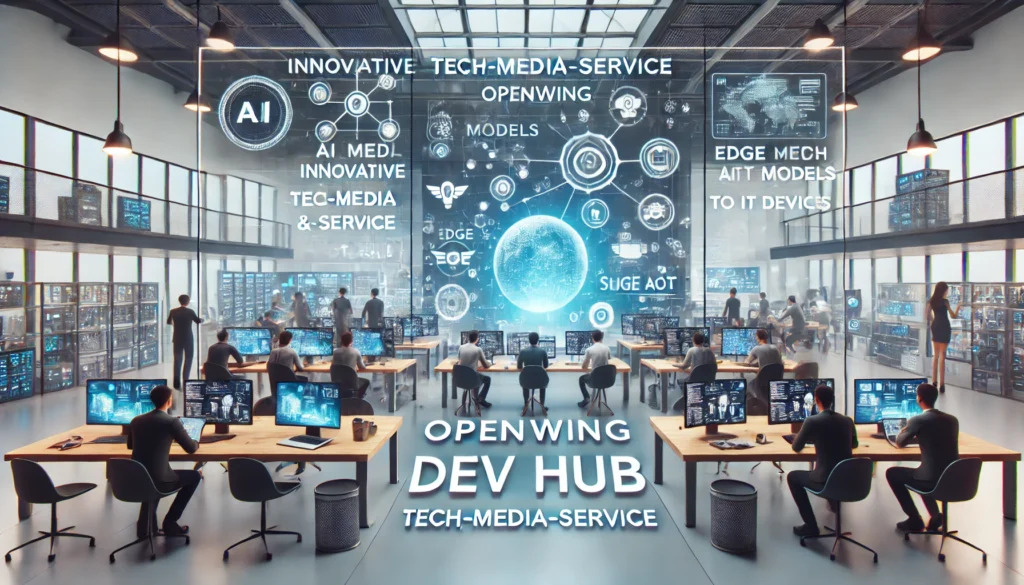
AIoT (Artificial Intelligence of Things) represents the integration of Artificial Intelligence (AI) with the Internet of Things (IoT), where connected devices not only gather and exchange data but also use AI to autonomously analyze, process, and act upon that data. AIoT enables smart devices—such as sensors, wearables, or cameras—to make real-time decisions, enhance automation, and deliver personalized user experiences by combining IoT’s connectivity with AI’s intelligence.
The global AIoT market reflects this potential, with projections indicating growth from $8.3 billion in 2023 to $60.8 billion by 2032. This rapid expansion underscores the importance of understanding the future of AI in shaping IoT advancements.
However, while the potential is vast, the AIoT market today resembles a maze, filled with obstacles that hinder innovation and complicate development. Let’s break down some of these key challenges:
Challenge 1 – Closed Ecosystem
Many independent developers find themselves constrained by closed ecosystems dominated by enterprise giants. Building AIoT agents for real-world scenarios often requires using proprietary platforms with restricted features and APIs. This lack of interoperability makes it difficult to create solutions that work seamlessly across multiple devices. Imagine trying to build a fitness tracker that only works with one brand of devices—frustrating, right?
Challenge 2 – Disconnected Innovation
With AI still in its early stages of evolution, both vendors and end-users often struggle to understand how to effectively leverage AI through devices like AI glasses. For many traditional IoT vendors, integrating AI capabilities into their smart devices is unfamiliar territory. This disconnection results in products that may be technically advanced but lack practical, real-world usability.
Challenge 3 – Slow Synergy Growth
The AIoT ecosystem remains fragmented, particularly regarding AI model selection and hardware compatibility, which slows synergy growth among device manufacturers, AI providers, and agent solution developers. This fragmentation forces stakeholders to expend excessive resources on integration as they must navigate multiple sources and systems.
Introducing OpenWing Dev Hub
Recognizing these barriers, OpenWing has established its Dev Hub on its innovative tech-media-service platform dedicated to fostering an open and collaborative AIoT environment. Through strategic partnerships with hardware providers and AI model developers, OpenWing equips AI developers with the tools and resources they need for seamless integration across devices. This initiative levels the playing field by providing access to developer-friendly smart devices and an array of edge AI models, promoting inclusivity and accelerating innovation.
The first cornerstone of this strategy is the preview of OpenWing AI Glasses Dev Package — a versatile toolkit that exemplifies OpenWing’s commitment to developer empowerment and open access.
1. Open Development Ecosystem
OpenWing’s AI Glasses Dev Package offers more than just commercial-ready AI glasses. It includes open-source APIs, detailed documentation, tutorials, and community support. This empowers developers to build interoperable agents that seamlessly integrate AI into IoT devices, especially smart glasses, tackling the problem of disconnected innovation.
2. Collaborative Agent Innovation Hub
OpenWing will provide access to its collaborative AIoT Agent Store where developers, AI experts, and IoT vendors can come together to co-create new solutions. This innovation hub offers testing environments, prototyping tools, and access to early-stage feedback, ensuring innovation aligns with real-world demands and market trends.
3. AIoT Certification
OpenWing will offer AIoT certification for smart devices and agents built with its toolkits. This certification ensures that developers adhere to interoperability, security, and usability standards. It also encourages collaboration between vendors, making AIoT solutions compatible and user-friendly across different platforms.
At OpenWing’s Dev Hub , developers now have the tools to build commercially ready AIoT applications that meet real-world needs, enhancing interoperability, usability, and user experience across brands and devices. As OpenWing continues to drive innovation within the AIoT landscape, it sets the stage for a future where technology not only adapts to our lives but enriches them through smarter, more interconnected devices. In an industry that is rapidly expanding and constantly evolving, Openwing offers a clear path through the AIoT maze, empowering developers and vendors to bring innovative solutions to life.

